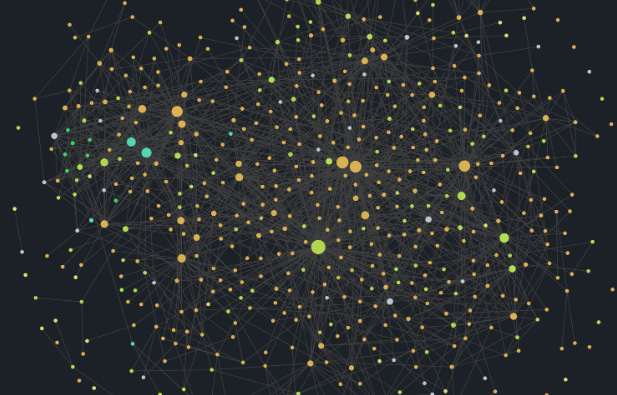A few years ago I used to dread taking down notes. I would sit down, and race against the teacher to take down anything they had written on the board, before they could wipe it out.
It was a constant Formula One Race, that I always seemed to lose. The result?
Hundreds of Notes I don't use or even remember.
Yet I still continued to use the same system Secondary School, and in College.
But that all changed when I discovered the Zettlekasten Method, and it's ability to make Note-taking actually fun.
It was something I was hesitant to at the beginning, because it went against all my natural inclinations of Note-taking, but once I took that leap of faith, I haven't looked back yet.
What is Zettlekasten?
Most note-taking, starts from a top-down approach. The teacher gives you the title, say "Cognitive Biases", and you write things confined to that category.
The problem with this approach is that it doesn't inspire you to think outside the box, and question insights.
Rather you follow the same routine, and in effect, make no new contribution or really understanding.
Because the way of learning anything is through **Elaboration**. And being confined from the beginning will not allow you to elaborate on what you learn well.
The Zettlekasten approach does something completely different. Instead of closing the boundaries of your notes, you let them be loose, and you don't have categories on them, and you allow them to be connected to other notes you've taken in the past.
The beauty of this method is obvious, once forming a cobweb of notes, you will start to find connections and links between them all, and from there novel ideas, and innovation.
Why does it work?
Zettlekasten works because the way you actually take the notes are completely different to racing against time.
You write down what you understand, and you elaborate on it, by writing. In effect, by writing you are thinking, and expanding your understanding.
You aren't copying what someone else wrote, you are simply writing about what you understand.
This works as it uses testing, and elaboration to help you learn more.
By writing you are testing yourself on what you know as you are basically recalling the information you've learnt. Then you are elaborating on it, which also enforces the connection within your mind.
Where do you gather information?
The obvious question now is, where do you gather the information? Well as an aspiring Polymath and avid learner, I aim to gather my information from books and ideas that spark my curiosity.
And in order to be curious, you need to first go wide. Read anything, watch anything, listen to anything, and eventually you'll find the ones that match your natural inclinations. And from there go deeper and study those ones.
My curiosities won't match yours, because our natural inclinations are different, which is perfect because the goal here is to gather insights and novel ideas, and only through your unique curiosities and viewpoint will that come to fruition.
What do I write about?
Once you gather the books you are reading, have a pencil in your hand and highlight key areas that apply to you, or that you interested in.
If it's a video take notes on words that are key to you.
Then open up a notes page and expand upon those key areas.
Let your mind elaborate on a specific saying, perhaps a summary of the page or whatever you are thinking about.
The point is we do not want our notes to be heavily restricted. We want our mind to wander, and write about whatever comes to mind.
What happens Next by continuous effort
The plan therefore is simple. Instead of taking, notes that are isolated, we want to create a cobweb of notes that are interconnected with each other.
Using Zettlekasten software like Obsidian works wonders for this.
From there your mind will naturally find patterns and similarities, relations between one set of notes and another. From there you will gather insights that beforehand were hidden.
This is where powerful insights about the world, and inventions will be made.
Venture Forth.



